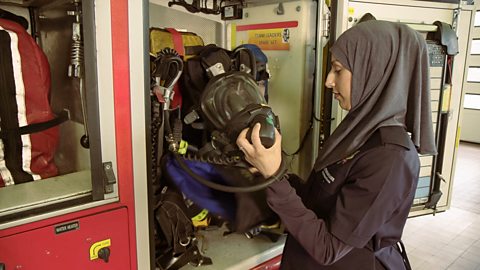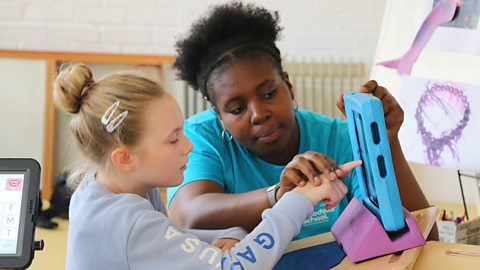
Young people are now being drawn to careers where they feel they can really make a difference to individuals or their communitiesâ¦
By Mark Anderson, Career Coach
In this article for secondary teachers, Mark Anderson â a careers education expert â offers practical tips and activity suggestions for engaging students in a session about jobs in frontline services.
Most young people donât know what they want to do in the future. And why should they? Advances in technology coupled with a rapidly changing world means that thereâs a strong chance the job theyâll do in the future, may not have even been created yet. Even when it comes to existing jobs, most of us are unaware of what they actually involve. However, there are a number of more âvisibleâ jobs that weâre all familiar with.
There are many different motivating factors when it comes to choosing a career path, such as status, money or the opportunity to be creative. However, many young people are now being drawn to careers where they feel they can really make a difference to individuals or their communities.
The pandemic raised the profile of our frontline services, especially NHS workers. When such roles are in the spotlight this can be the starting point for young people to consider these types of jobs for their own career. However, we only really see a snapshot of what these jobs involve. So how can we help students to find out more about such jobs and whether these roles are suitable for them?


Explore frontline service roles with your class
As a whole class, a good starting point would be to watch the video at the top of this Bitesize Careers article. This is a useful introduction to a range of familiar frontline roles.
When trying to decide what they want to do in the future, it could be really helpful and useful for students to identify their own interests, passions and skills. To help them do this (and for a bit of fun!) ask them to complete this emergency services quiz to see what type of frontline role might suit them. Of course, they may have no interest at all in this type of work, but itâs important that they understand the steps required for choosing a suitable career so that they can use them for any job sector.
When they have completed the quiz, encourage them to use the information provided about the job most suited to them, to help find the answers to the questions below.
What does the job involve?
What skills and qualifications are needed for this role?
What is the salary? (perhaps have a discussion about the difference between salary and wages)
What are the working hours?
How can you progress within the role?
Are there many vacancies available for this role?
Alternatively they can research a frontline job that they are less familiar with to broaden their knowledge and understanding. For example, they can refer to this Bitesize Careers Jobs in Healthcare page.

Learning about labour market information
The final question above relates to labour market information. This refers to data in relation to the current economic and employment situation for a particular sector or job.
It's important that students are aware of local opportunities in relation to jobs they are exploring. This can open up further discussions on the level of difficulty in getting certain jobs locally or further afield.
It is important the students are aware of local LMI when researching opportunities. This will also satisfy the requirements of Gatsby Benchmark 2.

Further ideas for classroom activities
When researching a job role, itâs not enough to simply rely on websites, TV dramas or preconceived ideas. Thorough research would ideally involve speaking to a real person who does the job. This will enable you to get the answers to questions that youâll never find on a website. Encourage your students to think of creative ways to create opportunities and speak face to face with certain professionals. Industry specific career websites and social media are two possible options. You may even discover that students have parents who are frontline workers. This could lead to more targeted invitations to school careers events (Gatsby Benchmark 5).
Once thereâs an opportunity to speak to someone about their job, the next step would be to prepare some questions. Like all professionals, frontline workers are very busy people so itâs important that these precious moments are not wasted. You never know when youâll get another chance!
Arrange your class into small groups. Ask them to imagine that a frontline worker (they can choose who this could be) has come to visit the school and they have 10 minutes to ask them questions about their job. The students should already know the basics of their selected job based on their online research, so this is a chance to delve deeper and find the answers to questions that you wonât find on a website. Encourage the students to spend a few minutes coming up with a list of probing, open questions (i.e cannot be answered with a simple âyesâ or ânoâ) that they could ask a frontline worker which will enable them to find out as much as they can about their role and whether it could be suitable for them. For example, a question such as 'does your salary allow you to have the lifestyle you want? If so how?â is far more meaningful than 'how much do you get paid?'.
They can then share their questions with the whole class.

Challenge stereotypes
You can also use the introductory video to start a discussion on career stereotypes. In small groups or as a whole class, encourage your students to discuss reasons why some jobs are dominated by one gender. Why are certain ethnic groups not represented as well in certain jobs? Why do we not see many male nurses? Ask them to come up with solutions as to what, if anything, can be done to redress the balance. Find out what might discourage (or deter) them from considering certain careers. Open up the discussion to talk about the impact of culture, background and religion on career choice.
Jobs in healthcare and frontline services. collection
A collection of resources from Bitesize Careers about jobs in healthcare and frontline services, for secondary-aged students.

Working at Wimbledon: Exploring jobs sectors with your students. document
Career Coach Mark Anderson discusses the variety of roles at a major sporting event such as Wimbledon, and gives practical tips on how to explore different career paths and job sectors with your students.

´óÏó´«Ã½ Bitesize Careers. collection
Explore the ´óÏó´«Ã½ Bitesize careers page. Designed for your students with advice and inspiration from people who have found the right path for them.
